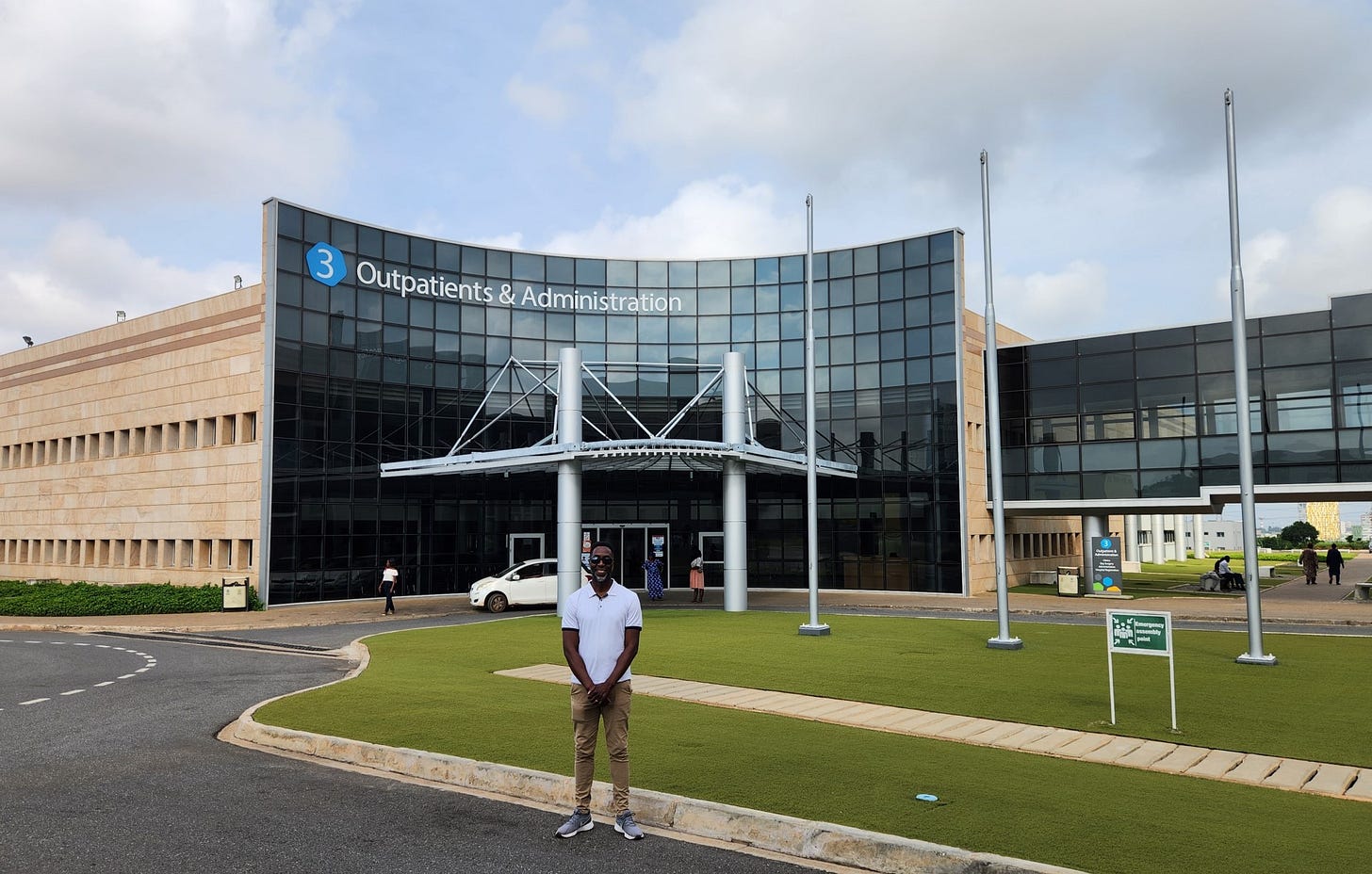My Journey
My Return to Ghana
I stepped into the brisk morning air to take everything in. I embraced the tropical heat and the beach like humidity that enveloped me. I savored the occasional refreshing breeze that washed over me. And I smiled listening to the morning greeting from a nearby crowing rooster. While I hadn’t stepped foot in Ghana in over 20 years, my first morning back felt familiar and calming. Upon my arrival the previous day, family and friends greeted me with an inviting “Welcome home!”
Driving through Accra, I immediately recognized the familiar busyness. City streets filled with cars, trucks, taxi-van “tro-tros,” motorcycles, pedestrians, street vendors, and occasional goats all sharing (or competing for) the same road. But along with the familiar, I noticed how much had changed over the last 20 plus years. I saw several new grocery stores, malls, developments, and high-rise apartments sprinkled throughout the city. I saw familiar educational institutions, like secondary schools and the University of Ghana, along with new trade schools, business schools, and student hostels. I saw restaurants and hotels serving some of my favorite Ghanaian dishes. I saw newer, local fast-food restaurants like Chicken Man, Pizza Man, and Papaye, alongside US fast food options, like KFC, Burger King and Pizza Hut!
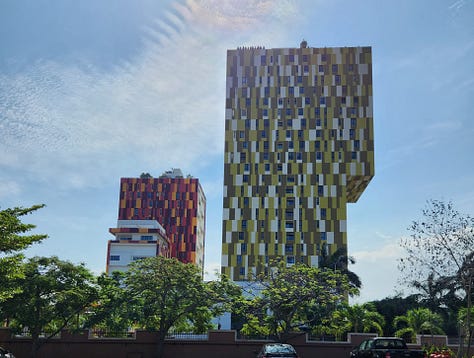
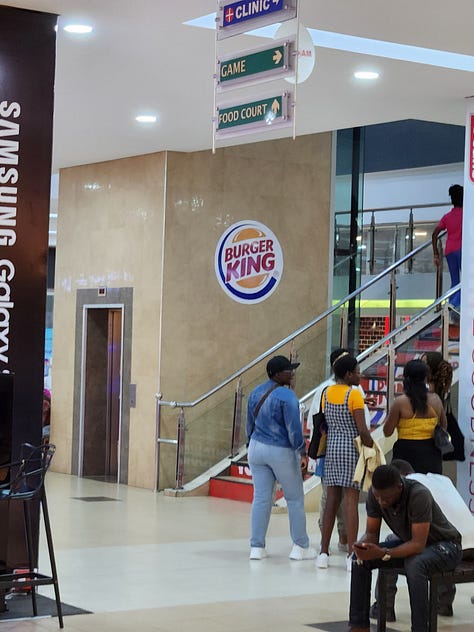
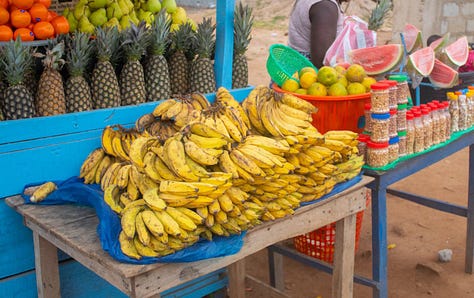
As a neuroscientist, I couldn’t help but reflect on how I was processing this mixture of the familiar and unfamiliar.
In one particularly odd moment, I caught a glimpse of myself in the mirror and was convinced that my face looked different!
Had my appearance suddenly transformed during my first few days in Ghana? Obviously not! But I soon realized that my self-awareness and self-perception had indeed shifted. In Ghana, I was walking with, talking with and interacting with many people with whom I shared physical appearances, facial features, and culture – even with all my “Americanisms” and with the cultural diversity in Accra. My experience in Ghana differed sharply from my daily experience here in the U.S. – especially as a professor at an Ivy League academic institution.
This is not to ignore all the privileges that come with my positionality as a scientist, professor and leader. But prior to my momentary glance in the mirror, I hadn’t fully acknowledged how I typically perceive myself in many pictures, spaces and environments in the U.S.
I’ve become accustomed to standing out.
This is not to imply that I’ve become oblivious to the ways I stand out. I’ve become accustomed to the mixed emotions associated with often being one of the few or only Black people in a room. I’ve become accustomed to the all the feelings associated with entering spaces that might be welcoming, awkward, uninviting, discriminatory, or any combination of these.
In that moment, as I stood alone in front of that mirror in Ghana, I saw a familiar face that seemed like it belonged. In that moment, I gladly embraced the familiarity, serenity and peace that comes with belonging.
This story is just one of the many reflections from my time in Accra. My summer in Ghana and the U.S. has included a rich mixture of relaxation, reflection, community investment, and preparations for the upcoming academic year. While there are far too many stories to share in a short newsletter, I’ve included a few additional highlights and reflections below.
I savored moments with aunts and uncles, filled with laughter, stories and reminiscing. While many of them are in their 80s and exhibiting the slower movements that come over a life span, they’ve thankfully kept their wit and humor.
I returned to the sobering realities of Cape Coast castle, a castle that was one of many hubs of the transatlantic slave trade, under various European nations. I mourned the victims of slavery and the many that died within those castle walls. I grieved at the human condition that condoned such atrocities. And I clung to the words inscribed in the castle wall:
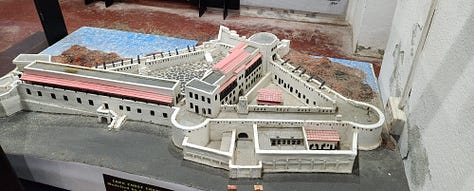
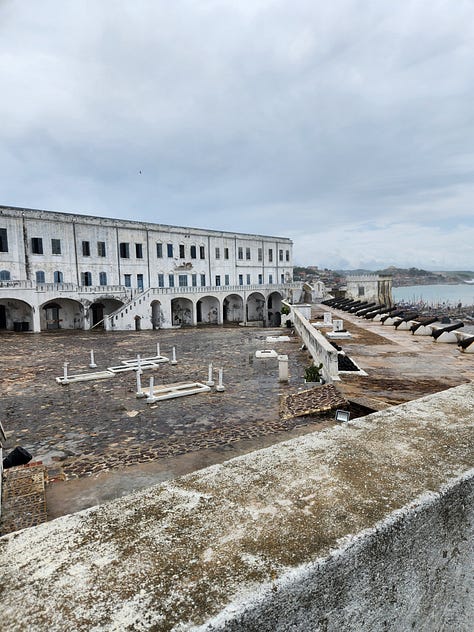

A model of Cape Coast Castle, an outdoor image on the castle grounds, and an inscription in the castle wall. “In Everlasting Memory. Of the anguish of our ancestors. May those who died rest in peace. May those who return find their roots. May humanity never again perpetrate such injustice against humanity. We, the living vow to uphold this.”
I visited the newly renovated Kwame Nkrumah Memorial Park and Mausoleum, commemorating the life and legacy of Dr. Nkrumah, the first Prime Minister and first President of Ghana. I learned about his life and passions, his education at Lincoln University, a Historically Black College and University in the U.S. I read in awe, as I considered Dr. Nkrumah’s vision as a transformative leader, his many infrastructural and educational initiatives in Ghana, and the mixed reactions to his pan-African vision.
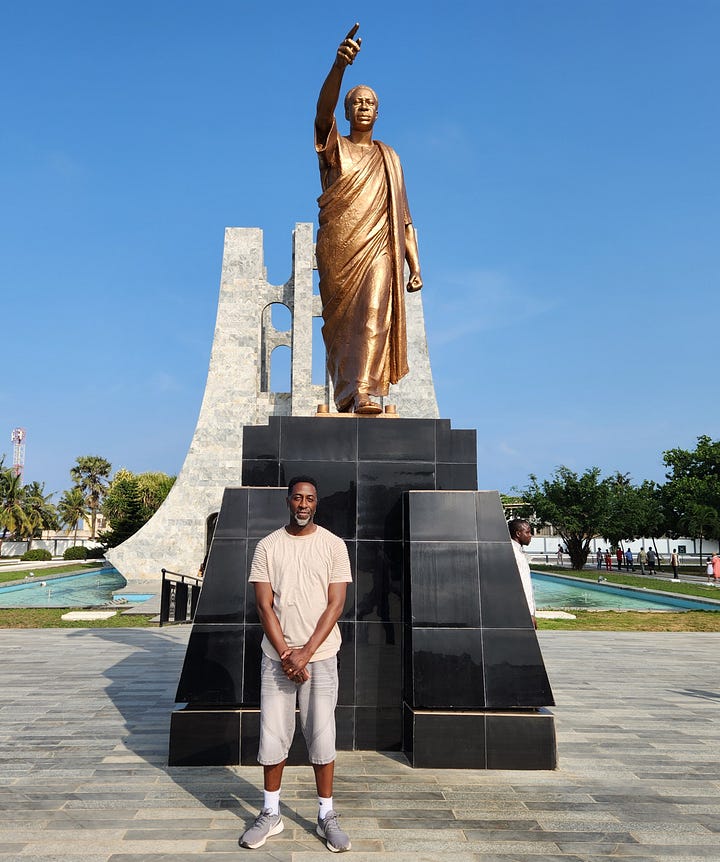
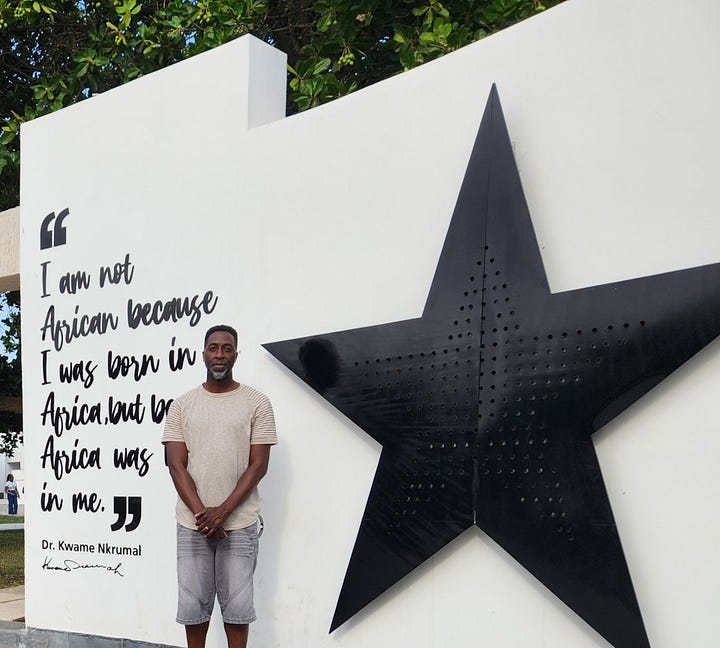
Images from Kwame Nkrumah Memorial Park and Mausoleum. Source M. Ofori I reflected on the tremendous growth, development and expansion in Accra over the last 20 years. I walked through new and expanded facilities at the University of Ghana Medical Centre. I heard about the plans for expanded clinical services and I toured a new clinical lab.
Most importantly, I took time to be present, to observe, to listen, and to savor my experience.
Wellness Tip
Decision Fatigue and the Gift of Time
One gift from my time in Ghana was my ability to pause from my (sometimes intense) daily decision making in my many roles. I had the luxury and privilege to momentarily step away from daily leading, planning, organizing, directing, and facilitating.
Whatever our daily roles and responsibilities, we can all probably think of a time (or times) when we’ve become tired of making decisions.
For this month’s wellness tip, I encourage you to think of the last time you took a few hours or even a few days to step back from ongoing, non-stop decision making. Similar to burnout, decision fatigue can lead to irritability, in addition to making it difficult to make sound decisions. It’s worth noting that life circumstances can heavily impact whether we’re experiencing decision fatigue. Many of us can also think back to the seemingly ongoing decision fatigue during the middle of the pandemic. Admittedly, decision fatigue can easily arise at certain life stages – especially those stages involving substantial care for others. This can include raising children, caring for older parents, or caring for someone through illness.
Thankfully, there are effectives steps you can take to address decision fatigue. These include building additional habits and routines, “automating,” or delegating decisions or using any number of methods to streamline your daily decision-making process.
A Look Ahead
While we’ve paused from new podcast episodes in these summer months, I’m also preparing for upcoming events and sermons in the fall. In these events, I’ll continue to integrate topics of neuroscience, mental health, faith, and culture. Stay tuned!
As we look forward to what’s ahead, I also encourage anyone interested in these topics to check out a panel discussion I joined last year, “Is Christianity Bad for Our Mental Health?”




